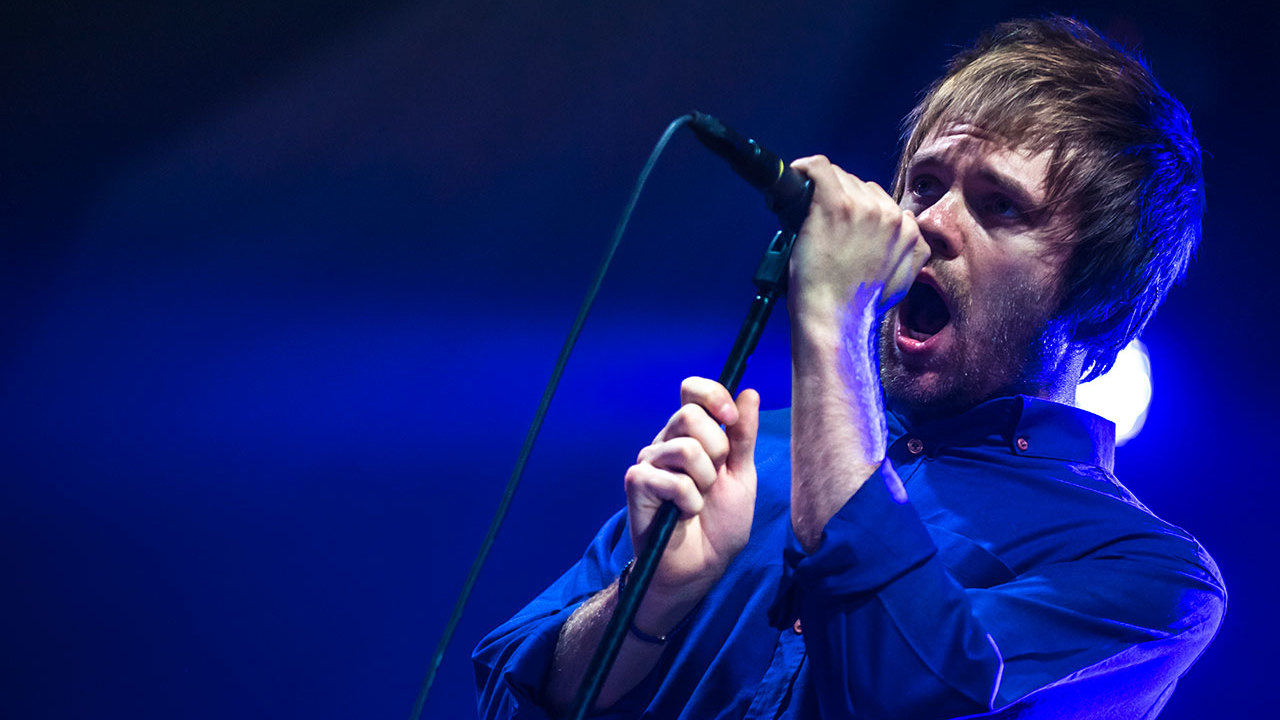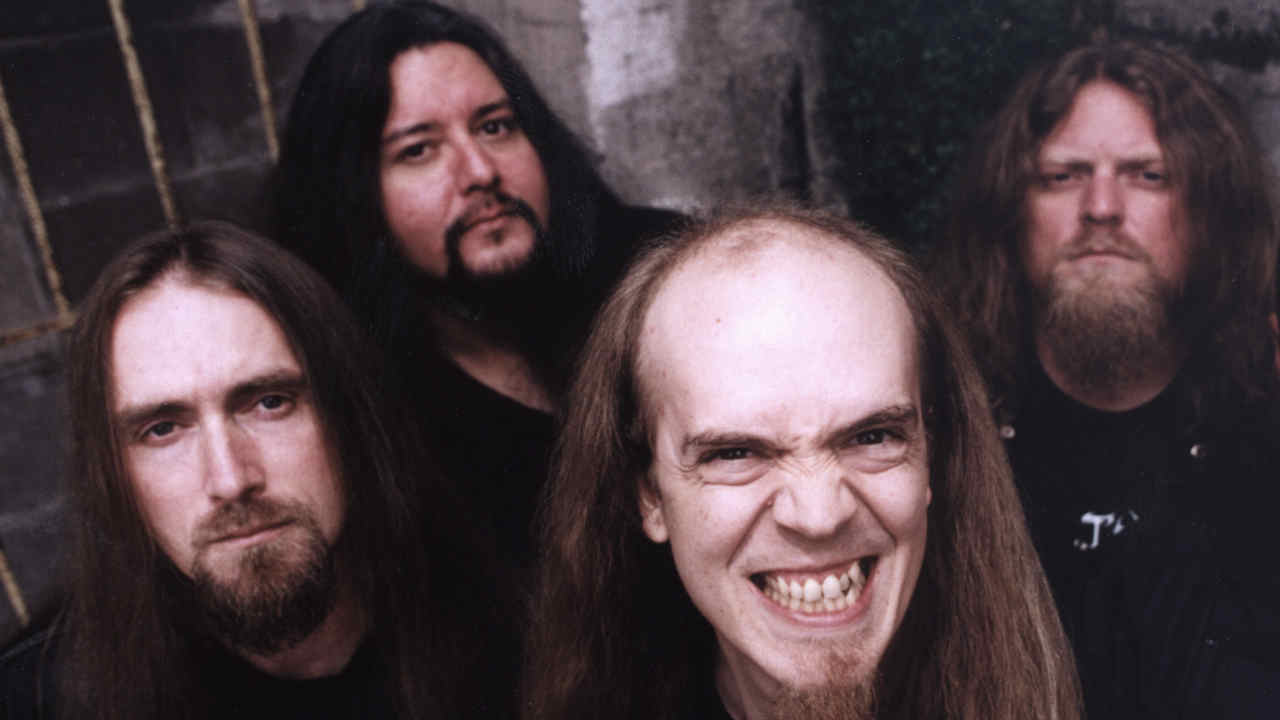Rou Reynolds: My Life In 10 Albums
Enter Shikari frontman Rou Reynolds travels back in time through his record collection

Enter Shikari have been mixing and bending genres since their inception in 2007 with Take To The Skies, and their upcoming fifth album The Spark continues that legacy. Often taking inspiration from the less heavy end of the spectrum, it’s no surprise that frontman Rou Reynolds has grown up on a music diet that ranges from post-punk to neoclassical and beyond.
Ahead of The Spark’s release on September 22, we caught up with the Enter Shikari vocalist to talk about the albums that have influenced and energised him as a performer and a music fan over the years.
The Beatles – Sgt. Pepper’s Lonely Hearts Club Band
“When I’d go to bed as an eight-year-old I’d listen to the whole album before I went to sleep, I’d hide my Walkman under my pillow. I used to love that. I devoured the whole Beatles back catalogue as a kid but that one stood out the most.”
Oasis – Be Here Now
“I was about 11 when I heard this. It’s a weird one because most people think the album’s terrible and it comes in last on a lot of people’s rankings of Oasis albums, but this was the first album I ever bought. I was aware of Oasis before then and knew the hits, but this was the first album I’d listen to over and over again and analyse. This was about the same time that I got my first guitar; I got the chord book and I remember learning every track on that album.”
The Prodigy – Music For The Jilted Generation
“This was another one from my uncle, but very different. I remember going through his record collection and I always remember seeing the front cover for it, the silver shouting face covered in steel, and it always intrigued me. Finally my uncle passed it to me and I was blown away. I was about 12 or 13 and it was like nothing I’d ever heard before. I’d listened exclusively to ‘pop’ music or a bit of Britpop until then, and it just knocked me for six. No Good (Start The Dance) is a track we used to walk onstage to and it was just the ultimate dance riff. Obviously Voodoo People, as well. I love that album.”
Adequate Seven – Songs Of Innocence And Experience
“This was their only album, sadly. I remember seeing them at the Pioneer, our local youth club when I was about 14. I was just getting into punk and the classic greebo bands, wearing oversized hoodies and listening to Rage Against The Machine. Rage Against The Machine were political but for a 14-year-old you have no idea what Zack’s going on about, but for Adequate Seven I could sort of get it more, it spoke to me more. Obviously being able to see them in a small club has such an impact on you as a young music fan. I remember thinking it was so cool. They would do the occasional rousing speech in between tracks and that was when I realised that music can be really powerful and fill you with hope, and make you feel involved. That wasn’t my world before then.”
Radiohead – Kid A
“I’m a huge Radiohead and could ramble on about any album, but I think this had the biggest impact on me because it was something so different. I was 14 and was aware of electronic music, but this was so obscure and peculiar in terms of its instrumentation and textures; it wasn’t like a dance genre, it was electronica, it was weird. I was finding my foot as a musician trying to write songs for myself, and this blew me away. The sheer fearlessness of it. To be able to come back and say ‘Fuck you, you have no idea what sort of band we are’ it was incredibly interesting. The beat in Idioteque is so untouchably cool. Often with electronic music it can be very defined by the period or by the genre, and it ages very quickly, whereas this isn’t house or dubstep, it’s just weird stuff and that makes it truly timeless. You can listen back to it now and it’ll still be as interesting.”
The latest news, features and interviews direct to your inbox, from the global home of alternative music.
- Watch Enter Shikari's video for new track Rabble Rouser
- Enter Shikari announce new album The Spark
- The 10 best Enter Shikari songs as chosen by Rou Reynolds
- Read Classic Rock, Metal Hammer & Prog for free with TeamRock+
The Streets – A Grand Don’t Come For Free
“I think Original Pirate Material is probably my favourite Streets album, but in terms of an album that inspired me it’s this. The fact that it’s one narrative running through the whole thing, I just found that incredibly interesting and inspiring and hadn’t come across anything like that in music. By the time Empty Cans comes on at the end and it does that rewind thing, and the story takes a sudden change then the piano riff comes in, if you’re not in tears by that point! I didn’t know music could do that; you could tell a story not just in a song but through a whole album.”
Igor Stravinsky – The Rite Of Spring
“This is one of the precursors to modern alternative music like punk or metal or tech. If you listen to it you can hear so much within it that not necessarily inspired the bands of today, but in terms of the progression of music he did so much. It’s actually a ballet, and there were almost riots in the audience because it was so forward-thinking. It’s pretty much atonal in a lot of places and uses dissonance that had never been used to the extent that he used it before. The chords that Meshuggah would use, basically playing two chords that are a semitone apart at the same time to create that harsh tone, this is where it started.
“There’s one bit in Augurs Of Spring, and if anything is the precursor to the modern breakdown then this is is it. It’s beautiful to listen to. The whole ballet is about a young girl who gets chosen as a sacrificial victim as spring starts and has to dance herself to death, which I think is the coolest fucking story for a piece of music. It had a huge impact on me when I discovered it at uni.”
The Dillinger Escape Plan – Miss Machine
“My mate introduced me to these guys when I was 16 years old or something, and by that point I was very much into punk and hardcore punk. I was never really into the more metal side of heavy music, there was something about punk that drew me in more. I still listen to a lot of metal, but it wasn’t until I listened to Dillinger that it opened me up. It feels weird, but like Stravinsky there was something so crazy and technical about Stravinsky that’s the same as Dillinger, so it made me ‘get’ more of that kind of stuff. The start of Miss Machine; you can’t envisage a more intense opening to an album, it’s like being pushed in front of a train. I fell in love straight away.”
Joy Division – Unknown Pleasures
“I discovered them quite late, to be honest. In 2007 when we brought out our first album and met Tony Wilson, we weren’t really aware of who he was. We didn’t know about the Manchester scene and the Hacienda and Factory Records, and he said something ridiculous about us like ‘The most exciting band since the Sex Pistols’ and coming from him I don’t think we realised at the time how amazing that was. Shortly after that, I did some research and discovered that whole world from the Happy Mondays to New Order, and got obsessed with it for at least a year.
“I feel like we’re in a bit of a slow period in terms of alternative and heavy music, in terms of progressive stuff. It’s a little slow and the stuff that’s inspiring me is coming from more popular realms and different places, and I feel like that’s what happened at the birth of post-punk. People were starting to getting a bit fidgety and pissed off that on the surface punk was all ‘Fuck you we can do what we want’ but it was actually quite regimented, and there were rules to what punk was supposed to sound like. I think post-punk was the reaction to that, saying no there are other vibes we can create with these instruments, it doesn’t have to be stupidly fast and erratic, there’s intensity that can be gathered from slower riffs and baritone vocals.”
Gary Numan – The Pleasure Principle
“There’s something about this album that I was immediately drawn to. It’s so simple; they weren’t really using sequencers so everything had to be playable. They came from a punk background and weren’t the most incredible musicians, so it was very simple synthlines. It’s amazing how different and how interesting that sounded, especially at the time, it must have been wild. His aesthetic I found really interesting, and that fearlessness of not only not sounding like anyone else but no looking like anyone else. He had that ‘fuck you’ attitude. He’s been a big influence.”
Enter Shikari’s new album The Spark is out September 22 and is available to pre-order now.
Luke Morton joined Metal Hammer as Online Editor in 2014, having previously worked as News Editor at popular (but now sadly defunct) alternative lifestyle magazine, Front. As well as helming the Metal Hammer website for the four years that followed, Luke also helped relaunch the Metal Hammer podcast in early 2018, producing, scripting and presenting the relaunched show during its early days. He also wrote regular features for the magazine, including a 2018 cover feature for his very favourite band in the world, Slipknot, discussing their turbulent 2008 album, All Hope Is Gone.
